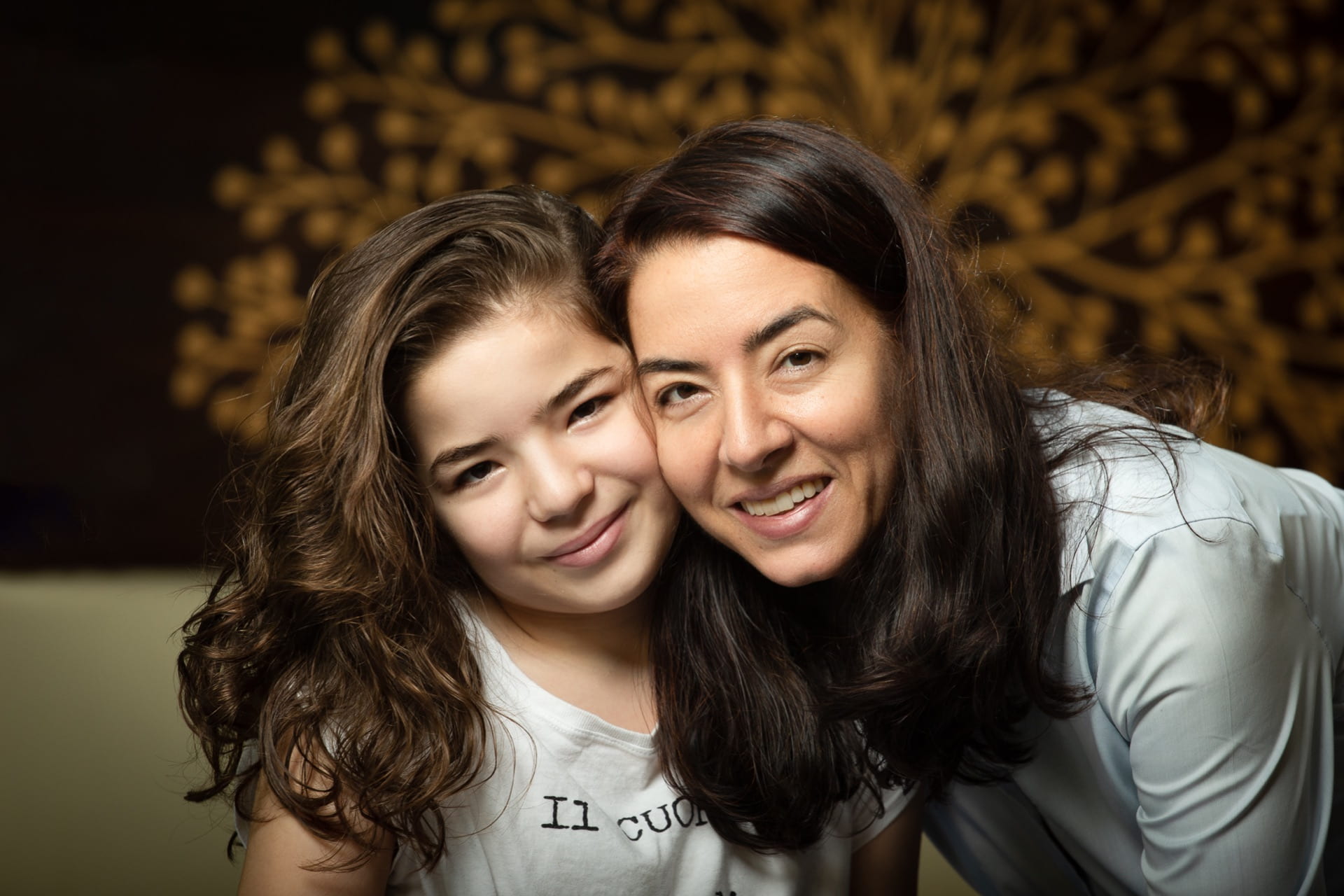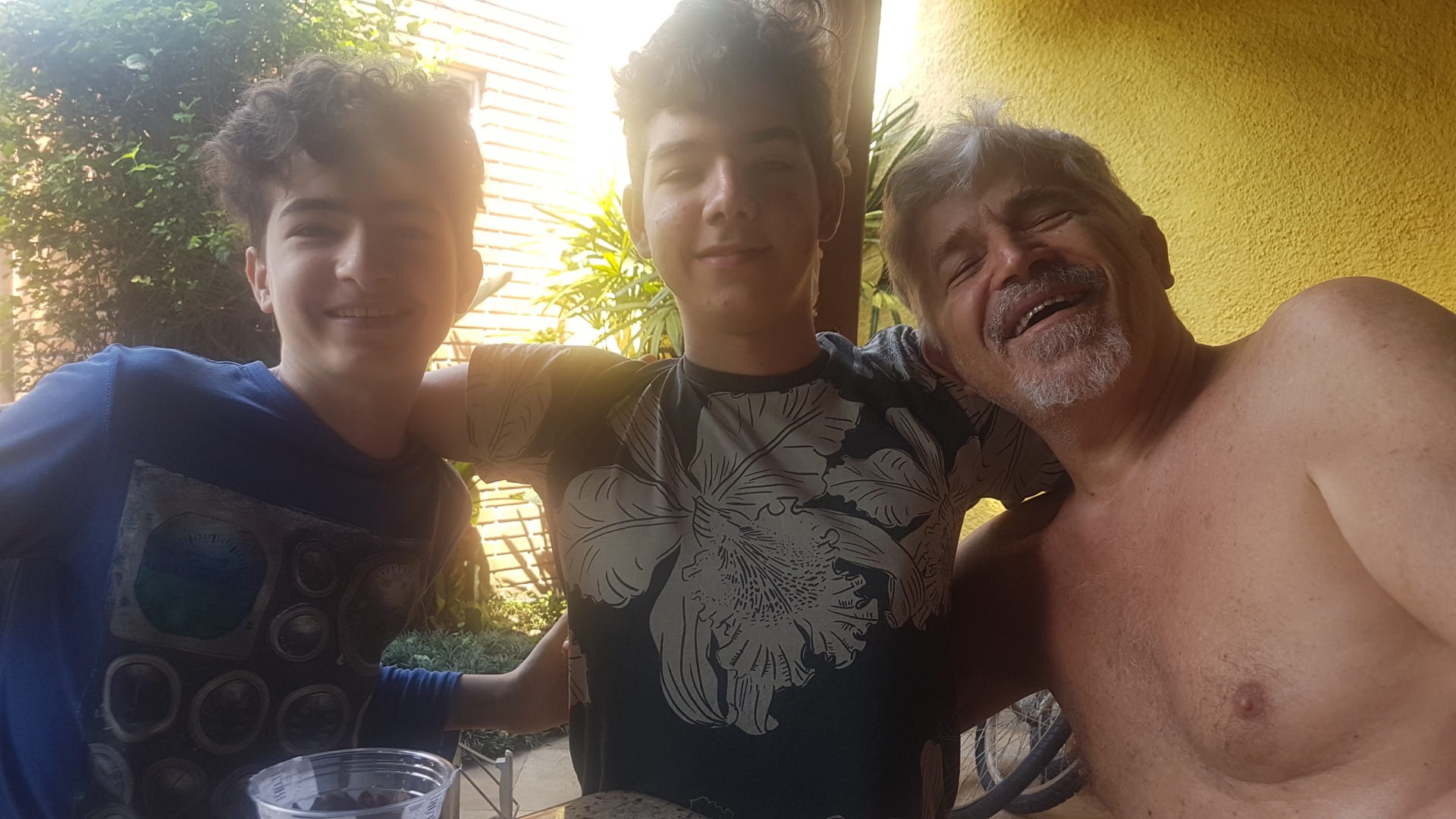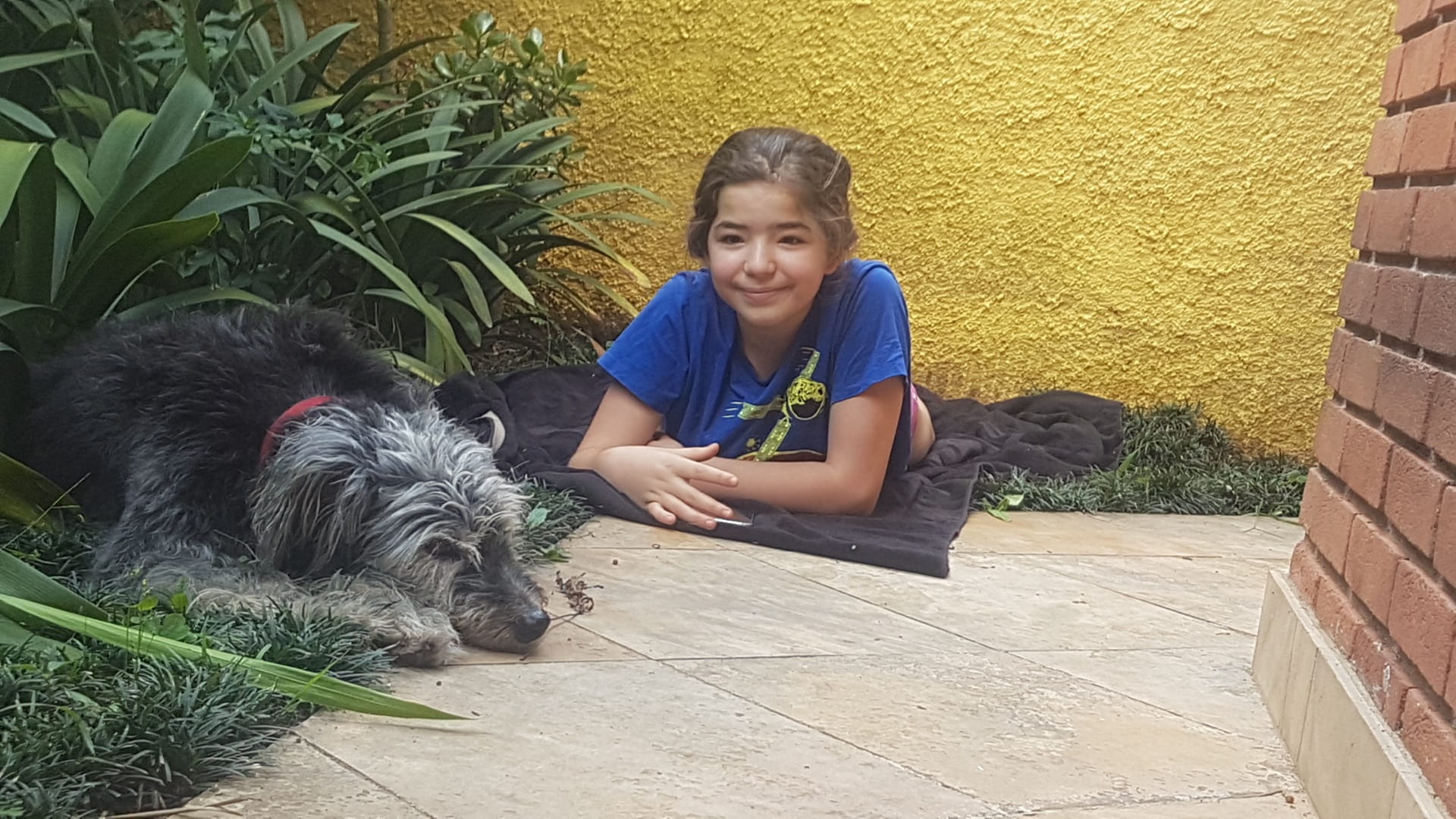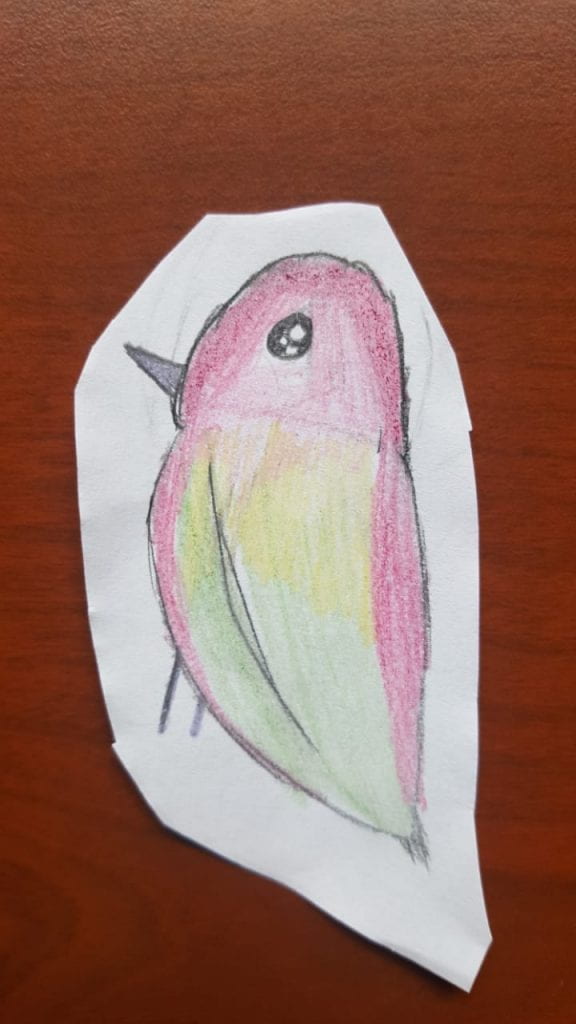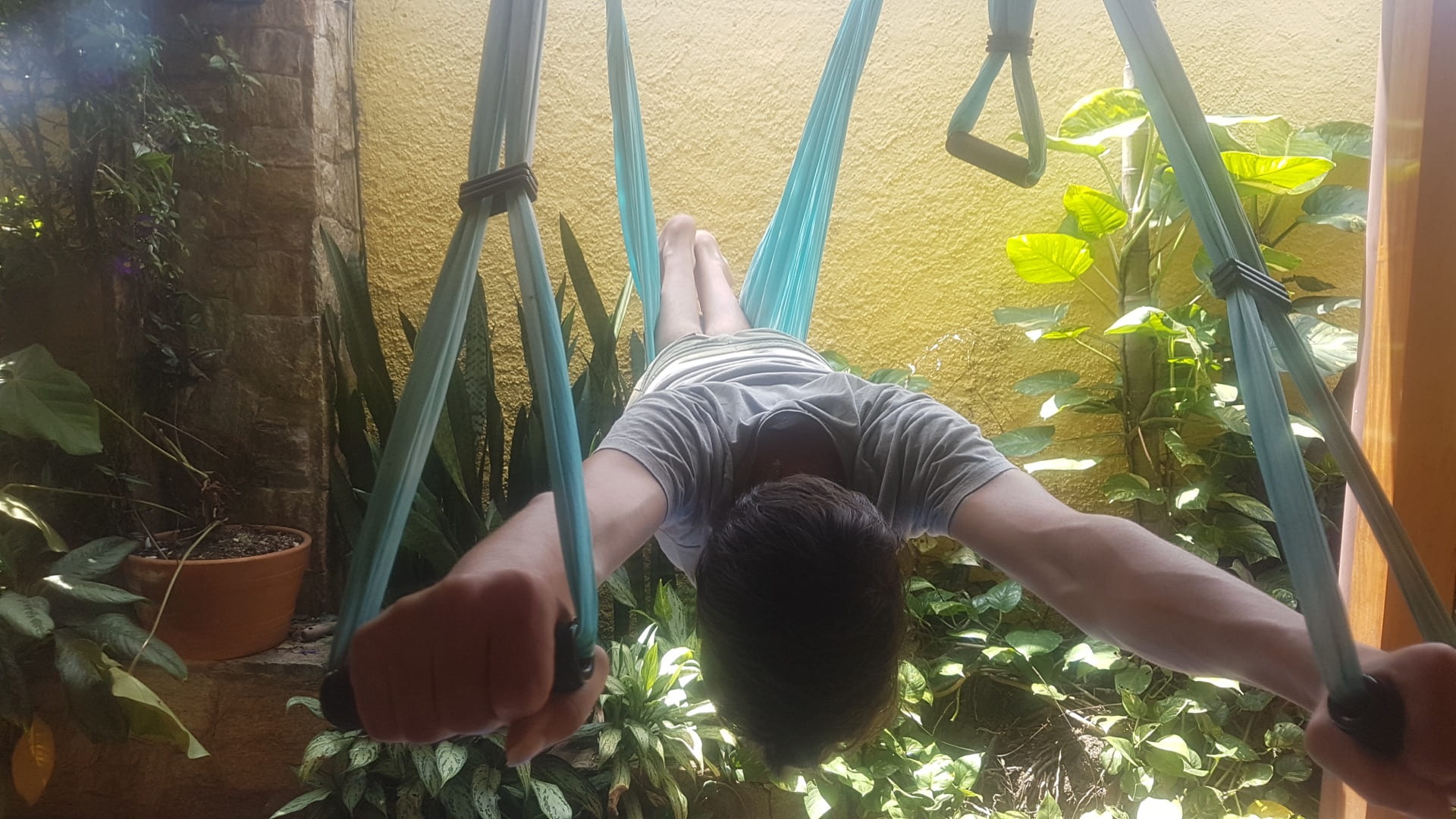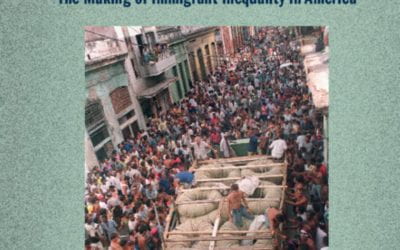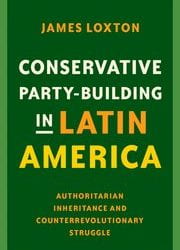Our Family During Covid
By Lorena Barberia, Angelo Barberia Masiero, Carla Barberia Masiero and Alessandro Barberia Masiero
Families in Brazil—and all over the Americas—face challenges during the pandemic. Those challenges for young people are even more apparent when your mother is a political scientist who studies and consults on the effects of the pandemic.
The Next Class
By Lorena Barberia
In several moments of the pandemic, as a mother, professor and researcher deeply immersed in the study of the response to the pandemic in Latin America and Brazil in particular, I have pondered the numerous dilemmas for children. There is no doubt that this humanitarian and health crisis is causing tremendous pain, suffering and losses for all of us, but our children are losing their childhood. The pandemic is imposing a violent process of forced maturation for children. There are no easy choices for me as a parent; my conversations with my children over the past 12 months have been characterized by their intense questioning and discussions. Even though I am a social scientist who studies politics and understands its determinant role in the lives of individuals and society, my children consistently remind me that I am being forced to have conversations that I should not be having with a 10-year-old girl, a 13 year-old boy and 15- year-old teenage boy. On Tuesday, March 2, I had to have one of those long conversations after I received a call from the school that my children’s science teacher, 39, had died of Covid-19. My soul felt like it broke into pieces.
We have experienced so many of those difficult moments since February 2020 here in Brazil. Within my own household, we all in different ways have embarked on learning during the pandemic. In the case of my kids, my 10-year-old daughter took the lead. She organized a “Stay at Home and Save the Life of a Grandparent” campaign at the onset of the pandemic. She immersed herself in trying to make a difference, and stayed at home strictly studying protocols, but at the same time her formal schooling stopped and did not resume quickly. As a 5th grader in a public school run by the State of São Paulo, her school closed for on-site learning in mid- March, then moved to advance her spring and summer vacations for the rest of April and early May.
While her brothers who study in a private school have had remote classes since the third week of March 2020, she remained at home “on vacation” in the first months of the pandemic. She studied alone; she started to read books, and she also lost contact with her beloved friends. When online learning was finally announced in May, the adjustment to online learning was difficult for her. And, after a few weeks, she gave up watching TV-streamed classes. She confessed to me that the classes were too far away from her experience in school. Her televised “classes” were 45 minutes a day, followed by 45 minutes of cartoons. As a university professor deeply concerned with learning in the university, I’ve actively worked to adapt my activity-based methods to teach statistics in my department to continue to use these methods with my students online during the pandemic. I could totally sympathize with my daughter’s reaction to TV instruction. We agreed that it would be best for her to withdraw from her public school, a difficult decision for her because, as she stressed repeatedly, she had assumed an important responsibility as president of her student council. It pained me to see her saddened by having to withdraw from a school and a community that cared for her deeply, affirmed her steps to become a young leader, and consistently challenged her as a student to be a critical learner, an experience my other two boys also had in this public school in the five years they spent there. It pained me equally to think of those who do not have the resources to make the same move to guarantee education to their children.
In the second semester of 2020, our family shifted to having all three children under the same remote learning system in the same private school. The daily routine we have followed since then is very demanding for my kids. Classes begin at 7:30 a.m., and there are only five-minute breaks; my kids spend their mornings sitting in front of the computer without seeing their colleagues (for privacy reasons, only the instructor is allowed to show his or her face in the school). In the afternoons, they return to homework lessons after a brief lunch. We never leave our home.
My daughter adapted to the online classroom. My 15-year-old confesses that he actually likes online learning more than on-site classes. He can concentrate on the materials without distractions from his peers. On the other hand, my 13-year-old son, who is an avid sports enthusiast, still yearns for the soccer games with his buddies. We gained in terms of ensuring education for all three children, but my children lost the spontaneity of so many precious moments—of playing with their friends and of being exhausted from running, or swimming, or laughing. These are some of the now never-ending losses that the pandemic has imposed on my kids.
At the start of 2021, as cases had already begun to rise since late November and deaths began to mount in Brazil, our family realized that we would once again be facing a prolonged period of several months at home under quarantine. No massive vaccine rollout was in sight and testing remained a poorly employed instrument to contain the spread of the virus in our communities. We decided to not return to on-site classes and instead participate in the school´s newly launched hybrid program from home. For those who choose to remain at home, our children could participate in classes on their computers as in the past. For those who chose to return to on-site schooling, one-third of students would attend in weekly rotating pods.
As a researcher who has studied how Brazilian governments have responded to the pandemic and conducted several evaluations of the effectiveness of these efforts, I strongly felt that the evidence justified my decision. The Centers for Disease Control (CDC) cites that high-risk communities are those with more than 100 cases per 100,000 and/or 10% PCR positivity test rate per week. In these contexts, the CDC guidelines advise, “Schools that are open for in-person instruction (either fully open or hybrid) may decide to remain open even at high (red) levels of community transmission. These decisions should be guided by information on school-specific factors such as mitigation strategies implemented, local needs, stakeholder input, the number of cases among students, teachers, and staff, and school experience. A decision to remain open should involve considerations for further strengthening mitigation strategies and continuing to monitor cases to reassess decisions. This should be driven by a ‘classroom-first’ approach; in-person instruction should be prioritized over extracurricular activities including sports and school events, a common source of school transmission, to minimize risk of transmission in schools and protect in-person learning.” Based on both criteria, the city of São Paulo, and our state as a whole, were in a severely critical situation. The risks were too high to return to on-site schooling, in our opinion.
But I confess that I understand that this decision to remain at home is not easy for anyone. From my own research, backed by survey work undertaken by NIC.br, I know that there are nearly one out of every three households in Brazil do not have access to the internet; these students were largely excluded from distance learning programs in public schools throughout Brazil. Moreover, I know those faces; they are my children’s friends; they are students I know, and I have the strong conviction that they are courageous souls with enormous potential who have been largely abandoned during the worst crisis to hit our country. I also know that there are students who suffer from hunger, and those who suffer from mental illness, which has either worsened or surfaced during the pandemic. There are children who are home alone as their parents must leave for long hours each day to earn the day’s wages to purchase food and necessities. If there is anyone who deserves the education that has been denied to them, it is these children who have been ignored and underserved during the pandemic.
As the first weeks of hybrid learning began, we witnessed from home with growing concern. In the first two weeks of school reopening, two of my kids’ teachers tested positive. Of these, the second diagnosed case was of my children’s science teacher from Colegio Objetivo-Paz. He passed away on the fifth day of his diagnosis, March 2. A father of two children, Rodrigo Andrade taught at three different schools to make ends meet, two private schools and a public school. He had taught all three of my kids. A humble, gentle man of few words, he was always smiling with a spark in his eyes when he would relay feedback on my kids’ progress in student-teacher meetings. My oldest studies sciences in high school in great part due to the seeds planted by my son’s experience in his classroom during middle school. We never thanked him.
On the day following the science teacher´s death, my 13-year old, usually quiet and reserved, spoke up in class to ask his teachers what they thought about what had happened. In his questions, there were so many questions that did not seem to have an answer that could quell the doubts lurking behind them. And I understood at that moment that instead of us adults talking so much, we need to remain silent to listen to children, and through these hours of listening we may one day be able to make reparations for the many hours and precious moments that have been robbed from their childhood. The fighter in the family, the youngest of my kids, kept asking two questions which I will never forget. “Mom, in our last class before he became ill, he was so excited for our next class as he was going to teach us one of his favorite topics. How can we find the courage to learn?” And the second question was about the remaining teachers.
“Are they safe? Have they been tested? What is going to happen to them?”
It is tremendously difficult to respond to her questions. There are parts of learning that we need to have the courage to continue; there is so much we can still do and every day is an opportunity to fight the good fight in our own way. At the same time, schools are being reopened during a severe and uncontrolled outbreak in Brazil. Schools can not be safer than their communities, and the efforts to open schools safely depend on a complex set of public policies that are not being undertaken, or enforced, in Brazil. They also depend on society, and society is confused about basic protocols of prevention, and how to avoid the severe forms of the disease caused by the virus. My kids do not trust adults; they remember their mistakes and see clearly that they have failed to protect them.
And so we start a new chapter in this pandemic. My kids are not the same kids of the onset of this pandemic. There have been so many valuable lessons they each have learned in this year-long experience, and slowly, I see that they are finding their voices in the midst of this painful, and violent experience. What remains? Resilience. Children who listen, who read, who question, and arrive at their own conclusions on the management (or most often failure to respond to the pandemic and contain its toll). Children who sing, who play music, who dance. Children who are no longer innocent, but witnesses.
I will stop talking now and give you their voices.
From Samba to Grief
By Carla Lorena Esperanza Barberia Masiero
March 12, 2020
It was a normal day at school. I had all my classes and during my break my friends and I planned the reelection of our student council (last year we had won, and I was the president). We were exchanging markers, talking without masks, etc. When I came home my mom told me the unpleasant news that I could not go back to school and that we would start to quarantine, I didn’t understand. I took it in a lot of ways. First, I was thinking my mom was going crazy. Then, I argued with her. Then, I was really upset. Then, I started laughing, thinking I would miss class. How could I not be happy? Then in the evening, I finally realized how stupid it was to even consider going back.
Mid-March and April, 2020
In the following days, I wrote up a to-do list for quarantine, thinking it would only be two weeks long. Soon, it doubled, tripled as the stay-at-home days extended. The cause: the virus could not be controlled. My school closed down a week after I stopped going there. The World Health Organization had declared Covid-19 a worldwide pandemic two days earlier.
I also realized the situation was not going to get better. To the contrary, it was only going get worse so I took a little time for myself, I started waking up at 10 a.m. and I would do nothing until 5 p.m., when I would start watching Netflix with my brothers. After a few days, I realized I could use this time to do a lot of things like learning, painting, drawing and playing.
July and August 2020
I was a public school student and, like so many of my friends and other kids in this pandemic, we did not have a good remote learning program. So in July 2020, I changed schools to a private one. I was grateful that now I was going to have a better remote education, but at the same time I was leaving the school that taught me so much, brought me so much happiness. I hated leaving the school where I met so many amazing friends and got the chance to be the president of the student council, and so much more.
2021
No matter if you try to ignore it, we all realize the situation that we live in today. It’s scary, and even after so many lives lost in the world and in Brazil, you still see people not wearing masks, going out and gathering in crowded places. It is very upsetting to me. I guess I just can’t understand society. For me, Brazil might be the worst place to be in this pandemic as I write at the end of March 2021, one year later. There is no ICU bed if you get severe Covid; we don’t test much so we probably have many more cases than reported; we never closed our borders so we probably have all of the world’s variants. Now, as the vaccine seemed to be our only hope, we don’t have enough vaccines because the government did not buy them at the certain time and now they have run out.
Truth is that we have failed in this pandemic in many ways here in Brazil. And the Brazilian government did not help by saying to Brazilians that “if you are an athlete when you were younger, you will be okay,” “it is only a little flu”, “drink ivermectin and hydroxychloroquine and you will be prevented from having a severe form of the disease,” “If you take the vaccine, you will become a crocodile,” just some of the examples that neglect science and have no scientific studies proving them right whatsoever.
- Carla’s pandemic drawings
Right now, as a Brazilian, every time somebody says Brazil, I do not remember the beautiful country that welcomes so many people, a country where people eat feijoada and dance samba. I see in my mind only one image, the images of thousands of holes ready to put coffins with humans who died of Covid in them, and I think it will be the image that we will carry with us. In future history classes, years maybe even centuries in the future, a society will study us and will see “Brazil, a country that killed thousands just because a lot of people, including the President and his supporters, did not want to stay at home.” They say, “If you stay at home, you don’t have freedom. Don’t be afraid.” But, I think, where is the freedom in being dead and what is the problem with being scared of death or even scared at all? It is an emotion and it helps us not do stupid things in certain cases. Sometimes, I only wonder if one of those persons who died would have had a child or a grandchild who could find the cure to cancer. In a certain way, it is not only one life lost, it is thousands or even more. Some days, I only hope that in future pandemics or crisis, we don’t behave or act like we did with this one causing the death of millions and the infection of two billions and something people.
This pandemic has not only taken lives, taken jobs, infected people, it has also taken our mental state to another level. It is not healthy for anyone to lose their cousin, mother, brother, uncle, friends, or in my case, my science teacher. I remember I didn’t do anything for a week when he died. I just sat and cried. It was heartbreaking, and the most scary thing of all was how fast it happened, I just thought he had Covid, I didn’t imagine he would die. Sometimes I remember him and just think, if my school had tested everybody, if my school hadn’t opened, if we had better leaders, if the pandemic was under control, if he was vaccinated, would he still be alive?
Angelo’s Story
By Angelo Mario Alegria Barberia Masiero
It is a question of adapting. We know how evolution works, the ones who best adapt to their environment are the ones who survive. We must adapt not only to survive in our environment, but to thrive and make the best of whatever situation we are in. So in a pandemic we must do something similar. That’s is what I have been trying to do since the start.
At first, I knew little of the virus here in Brazil. It was something which was very far away. On the other side of the world. And although there was the possibility of the virus reaching us, it wasn’t something which seemed problematic or dangerous. We are kind of used to diseases, We must confront diseases from a very young age, when we go to take our vaccine shots for the first time or we go to the hospital for this or that reason. At some point, I kind of realized that we would not be able to do things the same way for a while if the coronavirus reached Brazil. But that time came sooner than I ever expected. My mother, being very well informed, knew the obvious risks and started campaigning for isolation well before the numbers really started growing. Even before the authorities decreed quarantine, we were already locked away in our house. It wasn’t a shock that we had to do isolation, but I guess the feeling that prevailed for a long time was that the virus threat wouldn’t take long to pass.
I think I have always preferred to be home in the comforts of my house. But some time before the pandemic I was truly enjoying being home because it was where I could really focus on the things I love doing, such as language learning, coding or digital art, but mostly spending my time learning about the things that interest me. When we started the pandemic there wasn’t full support for online classes and most other things. So I kind of had a tiny vacation, and since I thought at the time that the pandemic wouldn’t last for too long. I cherished my free time, and used it to do as much as I could.
After some time most activities had moved online, and everybody had started adapting. Doing things online was never an issue to me. I have taught myself how to code, and I have learned Italian just as I have done with many other things that I’ve taught myself, and the Internet is the best place to find resources to learn. So, you could say that I am used to working remotely. And although I really miss doing some things that are not possible to do remotely, like swimming, going to piano classes, and travelling to see my grandparents in Buenos Aires, I have no need to do them because I understand that it is not possible, or at least, it wouldn’t be a good idea.
It’s a popular opinion that isolation is hard, especially for kids. I have also heard that being social and being with other people is part of our human nature. The reason why I neither disagree or agree with those statements is because I have no experience. If we think it through, most of us haven’t really been in isolation. What I understand by isolation is being completely cut off from everything. And with the internet, and communication apps our isolation is really only physical. Personally, during the pandemic I’ve had no problem socializing. Sometimes, all I’ve done all day long is talk with friends through communication apps.
There have been hard moments during this pandemic. I guess, the real difference is that now I’ve had the time to really think. Before, we were constantly going from one place to the other, moving from one activity to the next. But, as I have nowhere to go, sometimes I just stop and start thinking. I don’t know if thinking is good or bad, I guess it depends on the kind of result you get from that thinking. Having this kind of time to think has made me question everything and discover things about myself and others I couldn’t have realized before. I have thought about very philosophical matters and discovered what I want, who I want to be, and who I am right now. But there have also been times where I became very nihilistic and got very sad or even angry at everything.
Individually, I have taken measures to prevent myself against Covid. Looking back, I think I could have done some things differently. But I believe that, if we are to defeat this disease we must do it together. And the response in Brazil hasn’t been very effective. There are people who still don’t take the coronavirus seriously. If it was only those people who would suffer it would be fine, but this is a matter that affects everyone. And in matters that affect everyone we must look towards the State. Our President has influenced an opinion that I disagree with, that Covid is just a tiny cold. I could be gravely mistaken and the way things are being handled in Brazil are excellent, but if I, a young man, realizes we haven’t been doing greatly, then we must really do something.
As an individual, I am thankful for this opportunity. If it wasn’t for everything that happened I wouldn’t have become who I am at this moment. And I sincerely and honestly believe I now know more about life and living in general that I would have known if I hadn’t had this time during the pandemic to think.
Now, we are finally developing vaccines and vaccination campaigns have started all around the world. We have a way out from all this, if those vaccines work. But the question that fundamentally remains is why. Why have we been so ineffective in handling this virus? Why have we allowed so many of our people to die? Of course, humanity as a whole is still progressing. But if we could have done better, why didn’t we?
Alessandro’s Pandemic
By Alessandro Nicola Vittorio Barberia Masiero
For me, everything started in February 2020. By the beginning of March, we had stopped going to school because my mother thought the pandemic was getting worse in Brazil, even though no one had yet been reported as having died in São Paulo from the virus. Nothing else seemed to matter that month; everyone was desperate. We all had questions. The problem is that there were not enough answers.
One year later, here are my questions in March 2021, a year in which I have not left my house.
- Are the vaccines sufficiently strong to protect us from the variants that are circulating in the world?
- If the answer to the first question is no, will those who take vaccines be able to take another vaccine against the more dangerous variant?
- Are the old variants dying, or do they continue circulating along with new variants?
- Do animals have more immunity than humans to fight against the virus?
- Is the pandemic increasing the amount of food in the world as so many people are dying, or is there less food because less people are producing it?
- Is the pandemic increasing the amount of trash in the world, or are we simply more aware of the trash we produce because we only stay at home and see the final amount each week?
- Are the solutions that are being adopted today to fight against the pandemic sustainable, or will we keep having to repeat the same efforts for many years until we finally figure out how to solve this crisis?
- What is the world and my country doing to reduce inequality?
- If, as of today, nearly three million people have died of Covid in the world, will Brazil surpass that number by the time this crisis ends?
- If children have more or less immunity than adults, will they need stronger or weaker vaccines?
On most days, I think about these kinds of questions. I also study online. Every day, I have the same routine. I wake up at 7 a.m., turn on the computer, and I am in class until 12:30 p.m. The rest of the day, I am at home with my family. My routine has not changed much. The only time my mom leaves the house is at 5:30 in the morning to purchase food in an organic market. I beg her to let me go with her, but since the situation is really bad in Brazil, I am not allowed. I miss leaving home.
I love sports. My favorites are soccer, and basketball. I cheer for Gremio, which is a soccer team from my dad’s state in the south of Brazil, and I like Barcelona. My favorite basketball team is the Golden State Warriors. I started to cheer for them after watching them lose the playoffs against the Raptors in 2019. I watched that game with my 85-year-old grandfather, who was cheering for the Warriors in that game. He lives in Argentina, and I have not seen him for more than a year. I only recently started watching basketball again in 2021. In 2020, the Warriors had their best players with injuries, and they seemed to give up, ending the season as the lowest ranked team to pick a good player in the draft. Currently, they are in the tenth position in the Western conference. They might have a chance at the playoffs again. I still can’t see as many games as I would like to due to the time difference between Brazil and the United States, but I check on the results of who won the next day. I also love to play sports, but I can’t do that much these days.
The pandemic has affected everything, the economy, the life of people and sports. Even though sport competitions go on, stadiums are closed to the public during the pandemic. I used to love going to the stadium in Brazil to watch games with my father. The last time I was with a crowd here in Brazil was 2019. Gremio versus São Paulo. Now, we all watch these games from our computer or TV screens in our homes. In my case, Gremio’s games are almost always not screened on TV.
Recently, I read about a study showing that Brazil is a country with one of the most cases of Covid among players. Up to now, a player has not died of the virus, but I have read about many players whose fathers, or another family member died, and ex-coaches and trainers too. Without a question, soccer is a very lucrative sport; it generates lots of profits through the selling of players, corporate sponsorships and transmission rights. Sports have been adversely affected by the pandemic in terms of profits, but nothing compares to being infected and seeing family members perish. One solution to reduce the number of players would be to concentrate the teams in one stadium; teams would not have to travel to other cities. To solve the problem about the games outside of Brazil, I think world and regional competitions should be stopped. I also read about a soccer club in Russia, they bought vaccines and opened the stadiums for its fans. Before entering the stadium, fans take tests and then receive the Sputnik V vaccine. The program will continue until the end of the 2020/2021 season.
I don’t know how to end this essay. I just know that I am here at home in early April 2021. Gremio played last night. They won against their rival, Internacional. I waited to end this essay on a day that there was a victory.
Related Articles
A Review of Cuban Privilege: the Making of Immigrant Inequality in America by Susan Eckstein
If anyone had any doubts that Cubans were treated exceptionally well by the United States immigration and welfare authorities, relative to other immigrant groups and even relative to …
A Review of Conservative Party-Building in Latin America: Authoritarian Inheritance and Counterrevolutionary Struggle
James Loxton’s Conservative Party-Building in Latin America: Authoritarian Inheritance and Counterrevolutionary Struggle makes very important, original contributions to the study of…
Endnote – Eyes on COVID-19
Endnote A Continuing SagaIt’s not over yet. Covid (we’ll drop the -19 going forward) is still causing deaths and serious illness in Latin America and the Caribbean, as elsewhere. One out of every four Covid deaths in the world has taken place in Latin America,...

